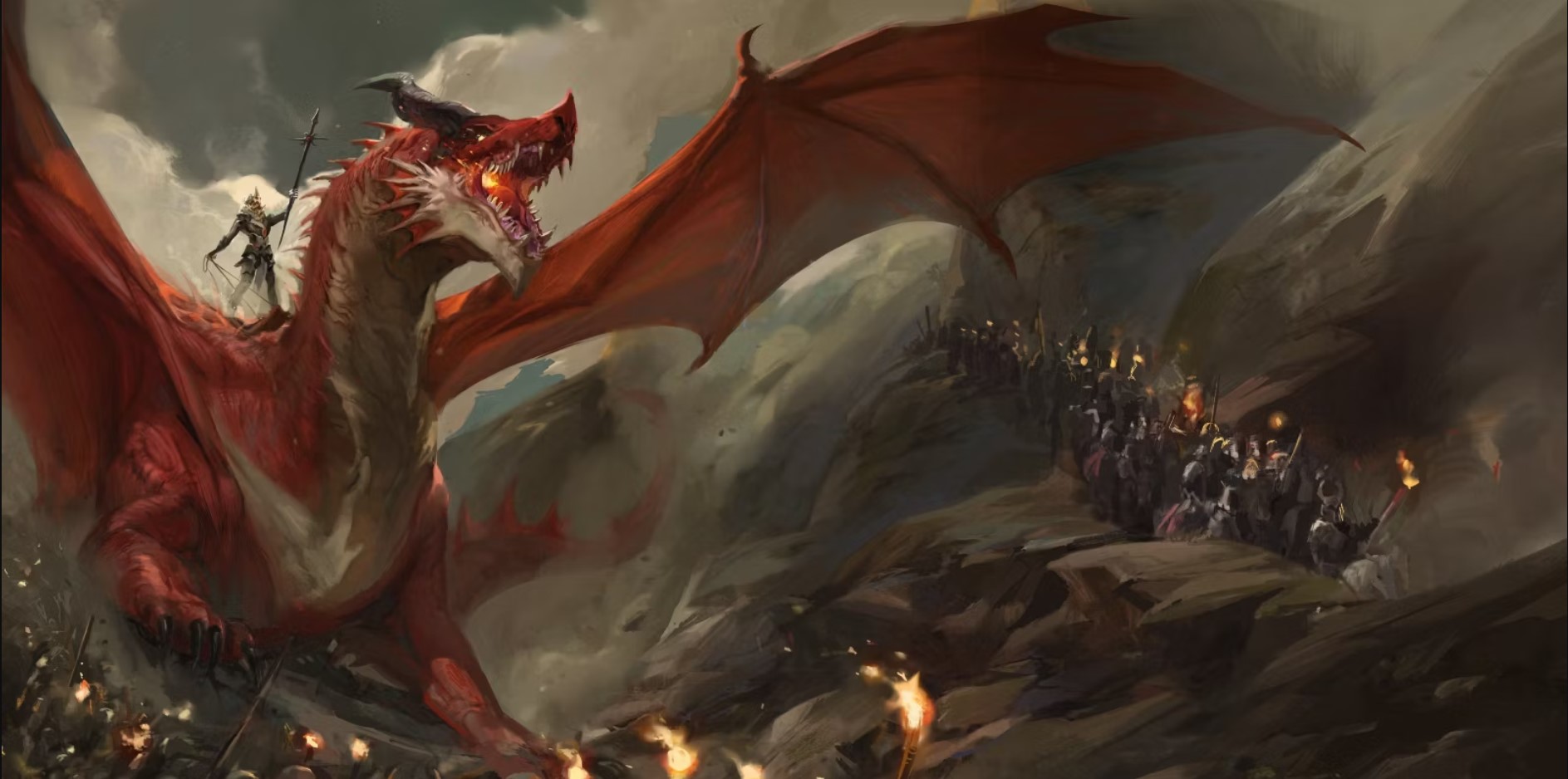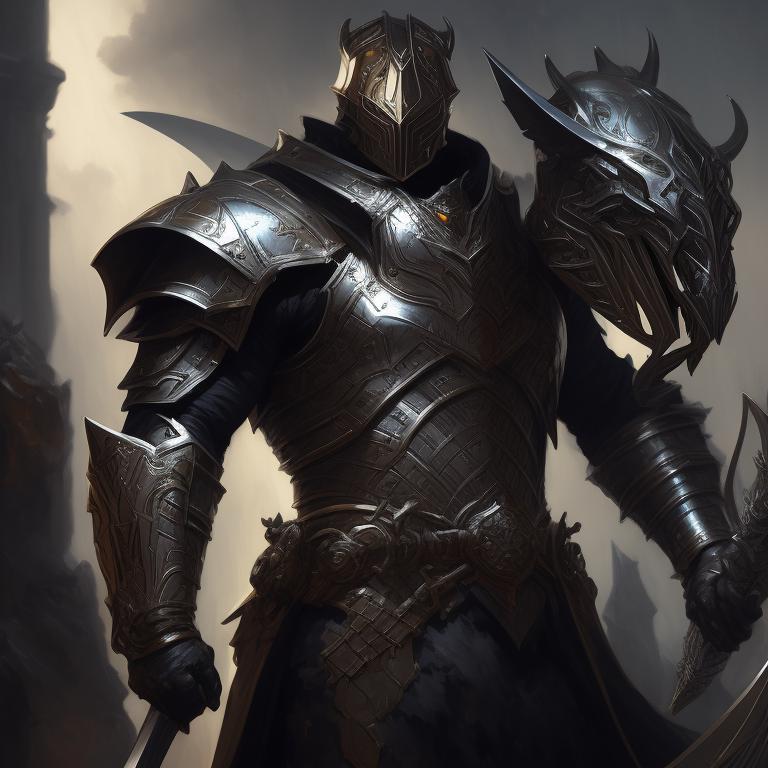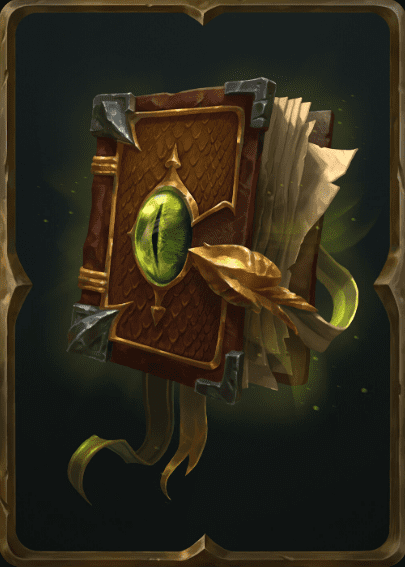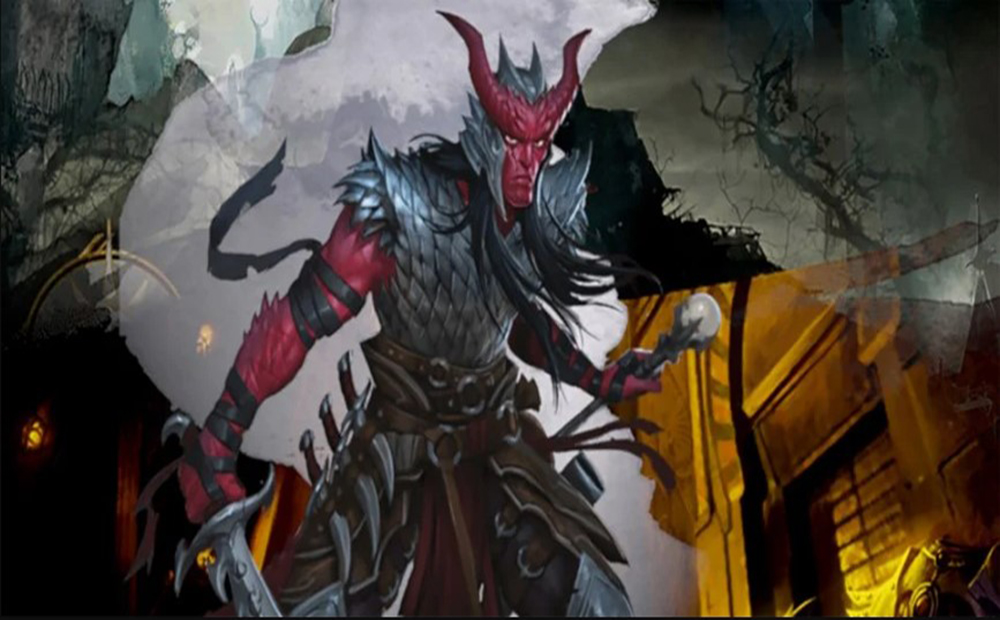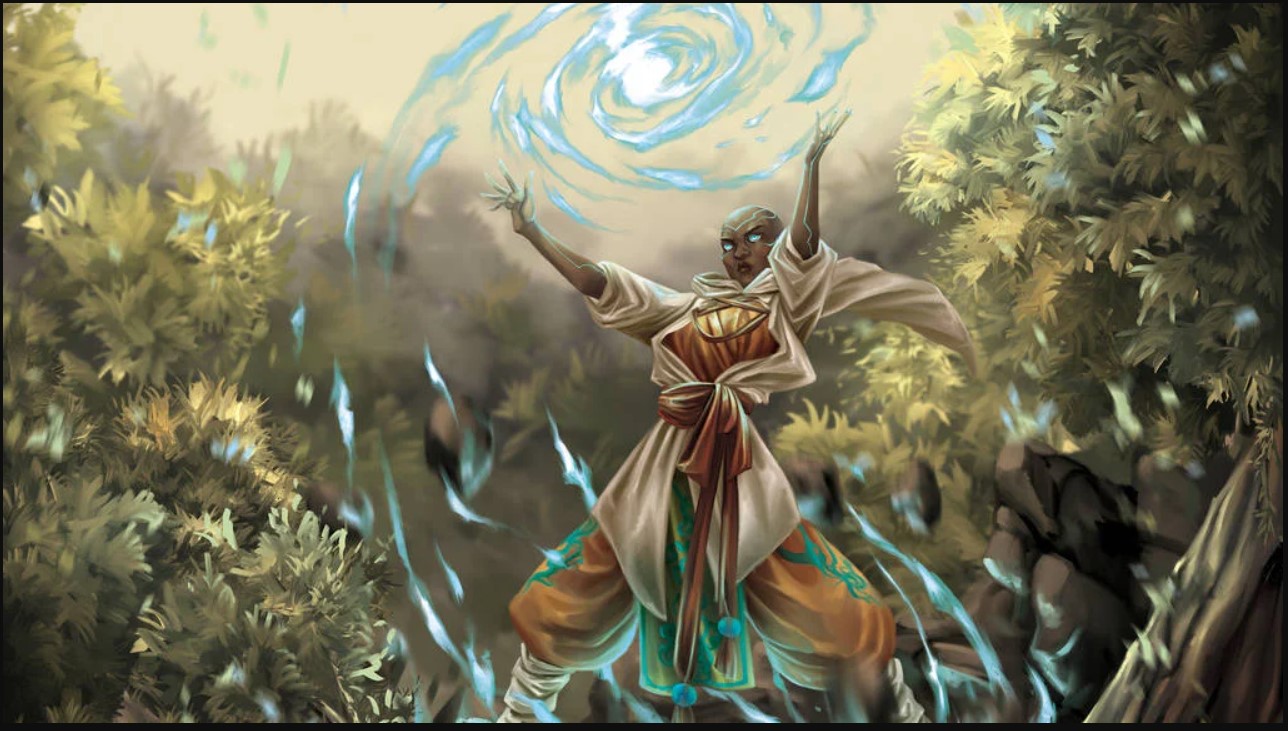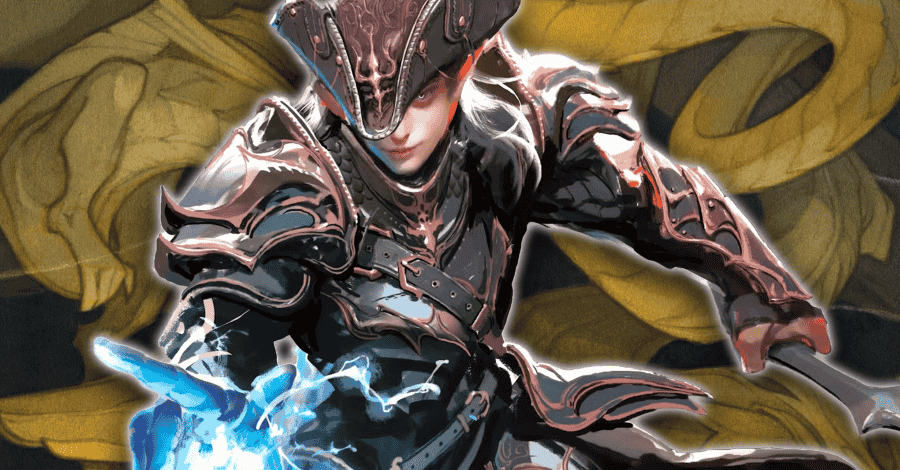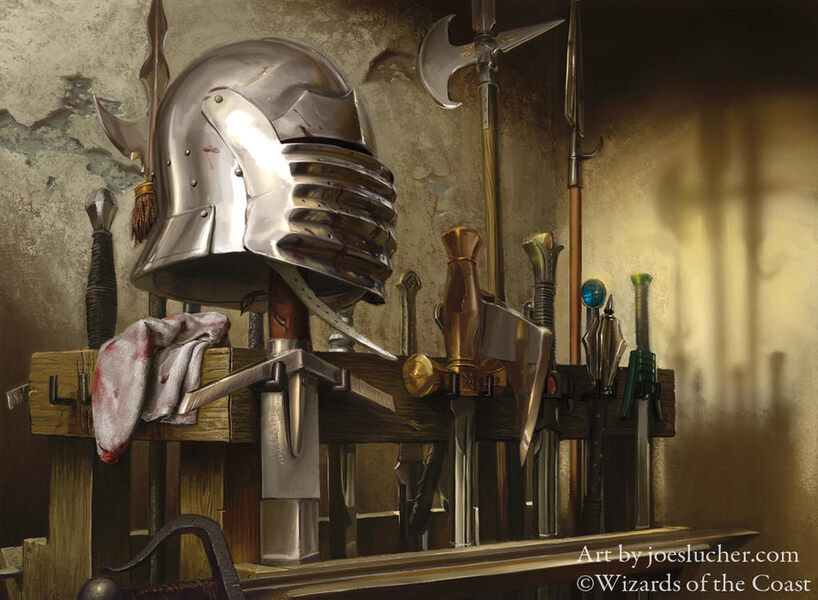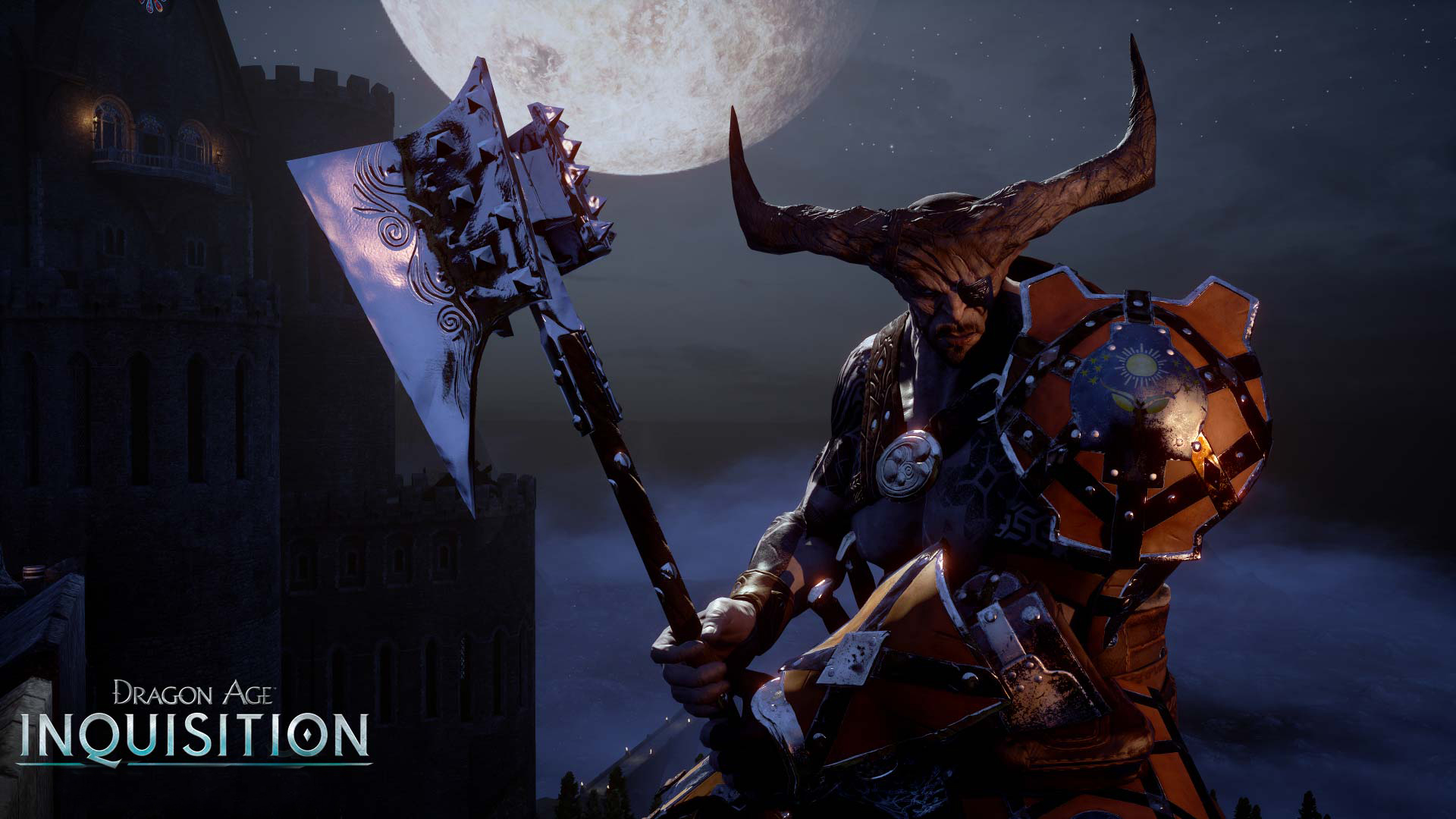
Rogues are the lancers of the D&D world, the foils to their party’s paragons of justice and do-gooders. They specialize in agility and cunning, preferring to subtly shift the course of action in their favor or sneak away right under someone else’s nose. While stereotyped as shifty and untrustworthy, rogues are the heart of the party—the ride-or-die friends who always have your back (or your wallet).
Since rogues pursue the art of stealth and subterfuge, their key feats should reflect or at least work alongside these abilities. These feats may make them speedy, more observant, or even provide arcane powers. They all build up the core features of the rogue and provide substantial boosts to their abilities.
Here are my top ten feats that will take your rogue from an amateur cat burglar to the silent blade you never saw coming.
10. Skulker (PHB)

Wizards of the Coast: Stealth Mission by Taylor Ingvarsson
You can’t catch what you can’t see! Skulker will give your rogue tools to hide practically anywhere.
Rogues are literally the thieves of the night. They specialize in stealth and sleight of hand, making sure their prey never sees them coming. Skulker will ensure they stay hidden, keeping them out of sight of the watchful eyes of their foes.
Skulker makes it even easier for your rogue to hide. Features like hiding when lightly obscured and missed ranged attacks not revealing your location can be crucial to a rogue who thrives on exploiting their foes’ weaknesses. It also improves your rogue’s Perception, allowing them to see normally in dim light even without Darkvision.
This feat is advantageous for a rogue because it keeps rogues obscured from their foes. While Sneak Attacks don’t require stealth, they can be utilized more with stealthy maneuvers, like hidden ranged attacks. Rogues without Darkvision can also take advantage of being able to detect their surroundings in dim light as they would normally.
Why Skulker is Great for Rogues:
- Silent as the night: Rogues are experts at hiding in the shadows to ambush their prey. Skulker makes it even easier for them to slip into the shadows, allowing them to hide even when lightly obscured.
- Whoops, my bad: Ranged attacks can be so finicky! If you miss, your enemy will know exactly where you are. With Skulker, when your rogue misses a ranged attack, their position remains hidden so they can shoot again.
- Dusk: While it doesn’t hold the same power as full Darkvision, Skulker grants your rogue a flat roll for perceiving their surroundings in dim light, where it would typically be at disadvantage.
Skulker
Prerequisite: Dexterity 13 or higher
- You are an expert at slinking through shadows. You gain the following benefits:
- You can try to hide when you are lightly obscured from the creature from which you are hiding.
- When you are hidden from a creature and miss it with a ranged weapon attack, making the attack doesn't reveal your position.
- Dim light doesn't impose disadvantage on your Wisdom (Perception) checks relying on sight.
9. Sharpshooter (PHB)

Wizards of the Coast: Poison Tip Archer by Dmitry Burmak
You are the master of all ranged combat as the resident Sharpshooter.
While daggers may be the rogue’s go-to weapon, they can be incredibly dangerous with ranged weapons. Sharpshooter increases the rogue's ranged combat effectiveness. With their enhanced maneuvers and damage output, your foes won’t even know what hit them.
I love any combat features which make targets easier to hit or increase damage. Sharpshooter does both of these—it allows your rogue to ignore long range and partial cover as well as gamble a slight attack penalty for massive damage. Each of these quickly racks up the damage your rogue can do, especially when paired with Sneak Attacks.
This feat is advantageous for a rogue because it makes rogues even more deadly at long range. Ranged attacks can be difficult, especially with long distances and cover, but Sharpshooter bypasses these restrictions. Furthermore, because your rogue naturally has high Dexterity, they can afford to take a slight penalty to attack in order to deal massive damage.
Why Sharpshooter is Great for Rogues:
- It’s in the name: While not all rogues utilize ranged weapons, sharpshooter is a clear choice for archers due to its extensive bonuses to ranged combat.
- Long range: Targets that are farther away are naturally harder to hit. Sharpshooter gives your rogue an eagle’s vision, making long-distance targets as easy to hit as close-range ones.
- You can run, but you can’t hide: Sharpshooter ignores half and three-quarters cover. If you can see your quarry at all, they are fair targets.
- My aim is true: Sharpshooter gives you the opportunity to gamble a penalty on attack rolls to gain a whopping +10 damage. Rogues also take Dexterity as their highest stat to minimize the risk of the attack penalty. Pair this ability with various sneak attacks, and your enemies won’t know what hit them.
Sharpshooter
- You have mastered ranged weapons and can make shots that others find impossible. You gain the following benefits:
- Attacking at long range doesn't impose disadvantage on your ranged weapon attack rolls.
- Your ranged weapon attacks ignore half cover and three-quarters cover.
- Before you make an attack with a ranged weapon that you are proficient with, you can choose to take a -5 penalty to the attack roll. If that attack hits, you add +10 to the attack's damage.
8. Dungeon Delver (PHB)

Wizards of the Coast: Thrilling Discovery by Campbell White
Sneak through dungeons with ease as a Dungeon Delver.
Along with rangers, rogues often scout ahead for their party to find tricks and traps planted in their path. While you won’t always be exploring dungeons or mazes, you and your party will need some skilled adventurers to ensure a stray acid pit isn’t a TPK. Dungeon Delver gives your rogue the enhanced awareness to notice traps and secrets as you explore.
Dungeon Delver helps your rogue prepare for the journey ahead. Whether they’re searching for gold or keeping an eye open for traps, Dungeon Delver will help them stay out of harm’s way. Even if they do set off a trap, this feat also shields them from its full effects.
This feat is especially advantageous for a rogue who needs to stay alert and aware. Traps can crop up anywhere in a D&D campaign, often where the party least expects them. When your rogue is sent to scout ahead, Dungeon Delver will provide the advantages they need to keep themselves and their party safe.
Why Dungeon Delver is Great for Rogues:
- Scout ahead: Since rogues are nimble and observant, they are already prime candidates to scout out danger. Even when not in a dungeon, Dungeon Delver ensures that your rogue will both spot these dangers and avoid getting caught themselves.
- Eye spy: With an advantage on Perception and Investigation checks, no detail will slip by your rogue unnoticed. Intelligence (Investigation) is already a strong stat for rogues, but Wisdom (Perception) will certainly benefit from the additional bonus.
- I play my Trap Card: Dungeon Delver gives your rogue an advantage on saving throws to avoid traps, which is typically Dexterity (a very high rogue stat). Even if they are caught, they gain resistance to the damage they do take.
- Get a move on!: No need to spend ages searching for mimics or pitfalls. Dungeon Delver allows your party to travel normally, even when keeping an eye peeled for traps. This brings your party mates up to your rogue’s skill level.
Dungeon Delver
- Alert to the hidden traps and secret doors found in many dungeons, you gain the following benefits:
- You have advantage on Wisdom (Perception) and Intelligence (Investigation) checks made to detect the presence of secret doors.
- You have advantage on saving throws made to avoid or resist traps.
- You have resistance to the damage dealt by traps.
- You can search for traps while traveling at a normal pace, instead of only at a slow pace.
7. Mobile (PHB)

Wizards of the Coast: Whirler Rogue by Winona Nelson
Outpace your foes and any traps in your way with the Mobile feat.
Rogues need to be swift and dexterous. Their whole character thrives on remaining nimble, both to avoid danger and to be the source of danger in the first place. Mobile gives your rogue some added agility to get them exactly where they need to be.
Mobile grants a bonus 10 feet of movement to your rogue, giving them the speed to travel even further each turn. In addition, their Dash is immune to slowed movement from terrain, and you avoid opportunity attacks from creatures you’ve already attacked. Each of these features makes your rogue quicker than light and as spry as a fawn.
This feat is especially advantageous for a rogue because rogues benefit so much from additional speed and agility. More movement speed takes them even further, allowing them to outrun many of their enemies (and allies). Not taking opportunity attacks from those you attack also allows you to dart in and out of the line of fire, remaining gracefully out of harm’s way.
Why Mobile is Great for Rogues:
- Speedy Gonzales: An extra 10 feet of movement is a massive bonus to the rogue! When paired with their Cunning Action Dash and evasive abilities like Uncanny Dodge and Evasion, your rogue can dart right up to their enemy or avoid them like the plague.
- Lighter than air: Difficult terrain could slow your rogue down, despite their newfound speed. But lucky you, difficult terrain doesn’t slow you down when you’re Dashing!
- You can’t hit me: Melee can be tricky if you want to avoid getting hit. You must either stay with that enemy or risk an opportunity attack if you leave. With Mobile, you don’t provoke opportunity attacks from enemies you have made a melee attack on, allowing you to run away if the situation turns sour.
Mobile
- You are exceptionally speedy and agile. You gain the following benefits:
- Your speed increases by 10 feet.
- When you use the Dash action, difficult terrain doesn't cost you extra movement on that turn.
- When you make a melee attack against a creature, you don't provoke opportunity attacks from that creature for the rest of the turn, whether you hit or not.
6. Fey Touched (TCoE)

Wizards of the Coast: Titania’s Command by Dominik Mayer
Journey to the feywild! Fey Touched grants you additional spells from the fey realm.
The fey love tricksters and those who can twist a situation to their advantage. Somehow, your rogue ended up in the feywild and gained access to magic only the fey wield. Fey Touched bestows new spells and bonuses on your rogue, allowing them to shape the world around them.
Rogues are typically non-spellcasters, the exception, of course, being the Arcane Trickster archetype. Even if they do learn to cast spells, Fey Touched will grant them a free casting of misty step to get them exactly where they need to go. They will also gain an additional spell of their choosing from the Divination or Enchantment schools.
This feat is advantageous for a rogue because it provides magic features to enhance the rogue’s abilities. Misty step can transport them anywhere they need to be (within reason), keeping them out of harm’s way or up close and personal with their foes. The stat boost and bonus spell also increase their mental agility and spellcasting flair.
Why Fey Touched is Great for Rogues:
- We’re not in Kansas anymore: What caused your character to become Fey Touched? Did they meet a denizen of the feywild? Were they tricked or lured in? Are they being rewarded for a good deed? Discuss with your DM the prevalence of the feywild in your campaign.
- Magic!: Rogues do not have an innate spellcasting ability. Even archetypes like the Arcane Trickster use the wizard spell list. Fey Touched gives your rogue a few spells to use with their newly discovered spellcasting ability.
- Twinkle toes: Misty step is one of my favorite spells because it grants the user much more mobility, especially in sticky situations. Arcane Trickster rogues will have access to this spell, but most rogues will not be able to cast at all. This feat not only grants you a new spell but also lets you cast it once without using a spell slot.
- Bonus spell and slot: In addition to misty step, Fey Touched grants an extra first level spell from the Divination or Enchantment lists. This means you can take an extra spell from another class’ spellcasting list and not consume a spell slot upon use.
Fey Touched
- Your exposure to the Feywild's magic has changed you, granting you the following benefits:
- Increase your Intelligence, Wisdom, or Charisma score by 1, to a maximum of 20.
- You learn the misty step spell and one 1st-level spell of your choice. The 1st-level spell must be from the Divination or Enchantment school of magic. You can cast each of these spells without expending a spell slot. Once you cast either of these spells in this way, you can’t cast that spell in this way again until you finish a long rest. You can also cast these spells using spell slots you have of the appropriate level. The spells’ spellcasting ability is the ability increased by this feat.
5. Magic Initiate (PHB)

Wizards of the Coast: Teferi, Temporal Pilgrim by Magali Villeneuve
New spells galore! Learn different spells from different class lists with Magic Initiate feat.
Rogues don’t typically have access to spellcasting, unless, of course, they become Arcane Tricksters. Even if they can cast spells, Magic Initiate gives your rogue multiple cantrips and a spell to enhance their natural abilities. Give a rogue magic, and who knows what will happen…
Pairing rogues with spellcasting is a blast. Not only do they have access to powerful Sneak Attacks and other abilities, but adding spells into the mix will give them some incredible abilities. Some spells can even be used alongside or enhance natural rogue abilities, like mage hand, misty step, and invisibility.
This feat is advantageous for a rogue because it grants rogues access to spellcasting. Even if your rogue already has access to the wizard spell list through the Arcane Trickster archetype, Magic Initiate gives them even more spells to work with. It can also allow rogues to branch out beyond the wizard spellcasting list, gaining access to class-exclusive spells like shillelagh, various smites, and vicious mockery.
Why Magic Initiate is Great for Rogues:
- Read this as a TV promo: But just wait! If you choose this feat right now, you can take not only one, but TWO extra cantrips! That’s right! TWO cantrips! In all seriousness, extra cantrips are especially advantageous for a rogue who cannot cast or has limited spellcasting abilities.
- Free spell and slot: In addition to two bonus cantrips, Magic Initiate also grants you a free spell from that class’s spell list. You can cast this spell once per long rest without expending a spell slot.
- Branch out into other classes' spell lists: Magic Initiate allows you to take cantrips and a spell from other classes' spell lists. This can open up your spellcasting repertoire even further, making your rogue an arcane warrior no one could predict.
- Charismatic spellcasting: Since your rogue’s spellcasting ability is Intelligence, it would be most advantageous to take a cantrip from the wizard's spell list.
Magic Initiate
- Choose a class: bard, cleric, druid, sorcerer, warlock, or wizard. You learn two cantrips of your choice from that class's spell list.
- In addition, choose one 1st-level spell to learn from that same list. Using this feat, you can cast the spell once at its lowest level, and you must finish a long rest before you can cast it in this way again.
- Your spellcasting ability for these spells depends on the class you chose: Charisma for bard, sorcerer, or warlock; Wisdom for cleric or druid; or Intelligence for wizard.
4. Shadow Touched (TCoE)

Wizards of the Coast: Shadowmage Infiltrator by Tomasz Jedruszek
Ooh, Shadowfell. What dark magic have you picked up from your adventures to this shadowed plane?
Rogues are practically invisible anyway, so why not make them fully invisible? Shadow Touched gives your rogue access to the invisibility spell (among others), allowing them to disappear completely. This, in addition to some fun spells, will completely obscure you from your enemies.
Every stealthy character dreams of becoming completely invisible. Shadow Touched not only grants your rogue invisibility, but it also grants them another spell and increases their stats. When combined with the rogue's Uncanny Dodge, Evasion, and Elusion, your enemies will be unable to harm you.
This feat is especially advantageous for a rogue because natural rogue abilities are enhanced by Shadowfell magic. While invisibility drops upon attacking, it gives your rogue time to position themselves in a hidden position or even sneak away without attacking at all. In addition, your rogue can gain access to another spell, which can be incredibly fun for a typically non-spellcasting class.
Why Shadow Touched is Great for Rogues:
- Magic!: Rogues do not have an innate spellcasting ability. Even archetypes like the Arcane Trickster use the wizard spell list. Shadow Touched bestows a few spells on your rogue to help them practice their newfound spellcasting ability.
- Now you see me, now you don’t: Invisibility can be incredibly useful, both in and out of combat, letting you turn yourself or your allies invisible until you attack or cast a spell. Arcane Trickster rogues will have access to this spell, but most rogues will not be able to cast at all. This feat not only grants you a new spell but also lets you cast it once without using a spell slot.
- Bonus spell and slot: In addition to invisibility, Shadow Touched grants an extra first-level spell from the Divination or Enchantment lists. This means you can take an extra spell from another class’ spellcasting list and not consume a spell slot upon use.
Shadow Touched
- Your exposure to the Shadowfell's magic has changed you, granting you the following benefits:
- Increase your Intelligence, Wisdom, or Charisma score by 1, to a maximum of 20.
- You learn the invisibility spell and one 1st-level spell of your choice. The 1st-level spell must be from the Illusion or Necromancy school of magic. You can cast each of these spells without expending a spell slot. Once you cast either of these spells in this way, you can't cast that spell in this way again until you finish a long rest. You can also cast these spells using spell slots you have of the appropriate level. The spells' spellcasting ability is the ability increased by this feat.
3. Crossbow Expert (PHB)

Wizards of the Coast: Bamboo Grove Archer by Steve Prescott
Become an experienced marksman and ranged combatant with the Crossbow Expert.
Crossbows are lean, mean, enemy-killing machines. They already pack a hefty punch by themselves, but Crossbow Expert gives them even more features. Even without a crossbow, Crossbow Expert will give your rogue special abilities with their basic ranged attacks.
Rogues don’t gain a crossbow with their starting equipment, but Crossbow Expert can be handy even without the featured weapon. Rogues often utilize ranged and melee combat, so Crossbow Expert’s ranged features provide added bonuses to boost these attacks. If your rogue picks up a crossbow, they can gain an extra crossbow attack each time they use a single-handed weapon.
This feat is advantageous for a rogue because it boosts a rogue’s ranged attack abilities and gives them an extra attack. Ignoring the disadvantage of close-ranged attacks is a great feature for rogues who use both ranged and melee combat. Since rogues don’t have the Extra Attack feature, the Crossbow Expert’s bonus attack with a crossbow can boost your character’s attack power.
Why Crossbow Expert is Great for Rogues:
- Crossbows: You love your crossbows! While rogues do not start out with a crossbow, Crossbow Expert provides both crossbow-specific and overall ranged weapon abilities that are well worth the investment.
- Close range: Crossbow Expert removes the disadvantage for ranged attacks within 5 feet, so you can utilize all ranged weapons within close range.
- Arrow to the knee: Two attacks for the price of one! After making an attack with a single-handed weapon, you have the lightning-fast reflexes of a Crossbow Expert and can make a bonus attack with your crossbow. This gives your rogue an extra chance to deal damage, even though they lack the Extra Attack feature.
- Pair with ranger abilities: Rogue abilities like Sneak Attacks and the Assassin archetype’s Assassinate provide additional damage and disadvantages to a specified enemy. Paired with the Crossbow Expert’s bonus attack, your rogue can take advantage of these features multiple times per turn.
Crossbow Expert
- Thanks to extensive practice with the crossbow, you gain the following benefits:
- You ignore the loading quality of crossbows with which you are proficient.
- Being within 5 feet of a hostile creature doesn’t impose disadvantage on your ranged attack rolls.
- When you use the Attack action and attack with a one handed weapon, you can use a bonus action to attack with a hand crossbow you are holding.
2. Piercer (TCoE)

Wizards of the Coast: Balduvian Berserker by Cristi Balanescu
Keep your enemies on their toes and deal even more piercing damage with Piercer.
D&D features a wide variety of damage types, giving different enemies different resistances or weaknesses depending on their armor or features. Many adventurers' weapons deal one of the major forms of physical damage: bludgeoning, slashing, or piercing. Piercer gives you additional bonuses to your piercing damage, making your specialized attacks hit harder.
Many of the rogue’s weapons deal piercing damage: daggers, arrows, rapiers, etc. With Piercer, these weapons can deal additional damage on critical hits or allow you to re-roll low-damage dice. In addition, Piercer can also increase your Dexterity, making your rogue harder to hit and stronger to fight.
This feat is especially advantageous for a rogue because rogues can gain so much from its features. Any Dexterity boost is advantageous for a rogue due to their nimble nature. In addition, Piercer’s damage bonuses and abilities are invaluable to a rogue wielding any sort of piercing weapon.
Why Piercer is Great for Rogues:
- Watch the numbers go up: Rogues begin with Dexterity as their highest stat. Piercer boosts this even further, potentially increasing that stat’s modifier.
- Piercing damage proficiency: A decent amount of rogue weapons will deal piercing damage, particularly their ranged weapons, shortswords, and daggers. Piercer allows you to re-roll the damage for a piercing attack each turn.
- ‘Tis but a flesh wound: Piercer deals an extra die of damage on critical piercing hits. Pair this ability with feats or features granting extra attacks, like Crossbow Expert or the Sneak Attack feature, and it will turn your enemies into pincushions.
Piercer
- You have achieved a penetrating precision in combat, granting you the following benefits:
- Increase your Strength or Dexterity by 1, to a maximum of 20.
- Once per turn, when you hit a creature with an attack that deals piercing damage, you can re-roll one of the attack’s damage dice, and you must use the new roll.
- When you score a critical hit that deals piercing damage to a creature, you can roll one additional damage die when determining the extra piercing damage the target takes.
1. Alert (PHB)

Wizards of the Coast: Alert Heedbonder by Randy Vargas
Nothing will surprise you! Remain primed for action with the Alert feat.
Rogues are the stealthy tricksters of the party, but their enemies can be just as sneaky. Some bad rolls and a well-placed ambush can catch your party off-guard, throwing you into chaos. Alert provides the tools for you to stay ahead of your foes, even when they try to turn the tables on you.
Alert is one of my favorite feats; it’s so simple yet so useful! Rogues can especially take advantage of its bonus to initiative to position themselves behind cover before their enemies even know the party is there. Not only does it grant you a bonus to initiative, but it also keeps enemies at bay when they try to sneak up on you.
This feat is especially advantageous for a rogue because it makes your rogue ready for action. The bonus to initiative will give them ample time to hide before your enemies notice you. Enemies cannot surprise you or gain an advantage by sneaking up on you, giving you plenty of time to make your move.
Why Alert is Great for Rogues:
- High alert: Rogues can get in some crazy damage when they are early in initiative through Sneak Attacks and hidden ranged attacks. Alert gives you the added initiative boost you need to position yourself in the right spot for a deadly attack.
- Party pooper: Too bad about your surprise party. With Alert, your rogue can’t be surprised as long as they’re awake, leaving them protected from an opposing Sneak Attack or ambush.
- I knew you were there: No one said your enemies wouldn’t sneak up on you instead! With Alert, your enemies don’t gain advantage if they try to give your rogue a taste of their own medicine.
Alert
- Always on the lookout for danger, you gain the following benefits:
- You gain a +5 bonus to initiative.
- You can’t be surprised while you are conscious.
- Other creatures don’t gain advantage on attack rolls against you as a result of being unseen by you.




